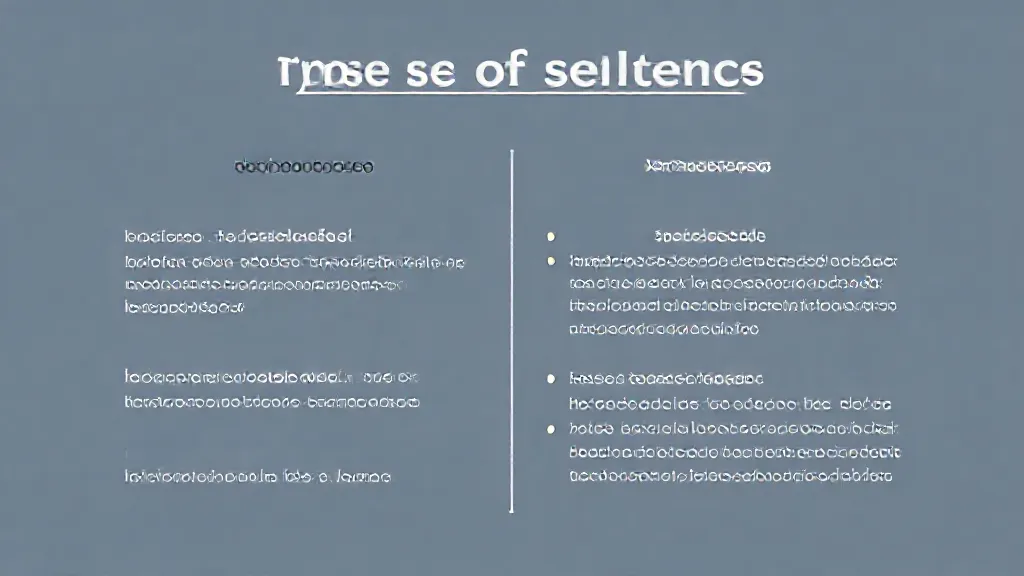Clauses are integral components of sentences that significantly contribute to the depth and complexity of written and spoken language. Understanding where and how clauses function can enhance clarity, provide additional information, and improve the overall quality of communication. This article delves into the various types of clauses, their roles in sentence construction, and the ways they enrich the meaning of our expressions.
Understanding Clauses: The Basics
A clause is defined as a group of words that contains a subject and a verb. Clauses can be classified into two main categories: independent clauses, which can stand alone as complete sentences, and dependent clauses, which cannot. Independent clauses convey a complete thought, while dependent clauses provide additional context or information but require an independent clause to form a complete sentence.
For instance, in the sentence "Although it was raining, we went for a walk," "Although it was raining" is a dependent clause that sets the scene for the independent clause "we went for a walk."
The Power of Independent Clauses
Independent clauses are the backbone of sentence structure, serving as the main idea or action within a sentence. They can be combined with other independent clauses to create compound sentences, enhancing the richness of the text.
For example, "I enjoy reading, and my sister loves painting" combines two independent clauses to convey a more comprehensive understanding of the interests of the speaker and their sister. The use of independent clauses allows writers to express complex ideas succinctly while maintaining clarity.
Enhancing Sentences with Dependent Clauses
Dependent clauses add depth by introducing subordinate ideas that complement the main clause.
They often begin with subordinating conjunctions such as "although," "because," "since," or "if." For example, in the sentence "She went to the store because she needed milk," the dependent clause "because she needed milk" provides essential context that explains the reason for her action. This additional information enriches the reader's understanding and creates a more engaging narrative.
Types of Dependent Clauses and Their Functions
Dependent clauses can be further categorized into noun clauses, adjective clauses, and adverbial clauses, each serving distinct functions. Noun clauses can act as subjects or objects in a sentence, as seen in "What you said surprised me." Adjective clauses modify nouns and provide more detail, such as in "The book that I borrowed was fascinating.
" Adverbial clauses, on the other hand, modify verbs, adjectives, or other adverbs, adding context like time, cause, or condition, as in "If it rains, we will stay indoors." Each type of dependent clause plays a crucial role in creating nuanced and layered sentences.
Combining Clauses for Cohesion and Flow
The strategic combination of independent and dependent clauses can enhance cohesion and flow in writing.
By varying sentence structures and incorporating clauses, writers can maintain reader interest and emphasize key points. For example, "While I enjoy hiking, my friends prefer staying indoors" contrasts two perspectives using a dependent clause to create a smooth transition between ideas. This technique not only improves readability but also allows for a more dynamic expression of thoughts.
Historical Perspectives on Clause Usage
Historically, the use of clauses has evolved alongside language development. Early English grammar emphasized the importance of sentence structure, and the correct use of clauses became a critical aspect of writing. Classical rhetoric, which dates back to ancient Greece and Rome, highlighted the significance of varied sentence structures, including the use of clauses, to persuade and engage audiences.
Understanding this historical context can provide insight into the ongoing importance of clauses in effective communication.
Practical Applications in Education and Writing
In educational settings, teaching students about clauses can significantly improve their writing skills. By understanding how to effectively use independent and dependent clauses, students can develop more complex and engaging sentences.
Exercises that encourage sentence combining and the use of varied clause types can foster creativity and enhance clarity in their writing. Furthermore, recognizing the role of clauses in literature can deepen students' appreciation for the craft of writing.
Conclusion: The Importance of Clauses in Communication
In conclusion, clauses are essential elements that add depth and complexity to sentences.
Their ability to convey additional information, create nuanced meanings, and enhance the flow of language is invaluable in both written and spoken communication. By mastering the use of clauses, individuals can improve their writing skills, engage their audiences, and express their thoughts more effectively. Understanding where clauses fit into the broader context of sentence structure is key to becoming a proficient communicator in any language.
